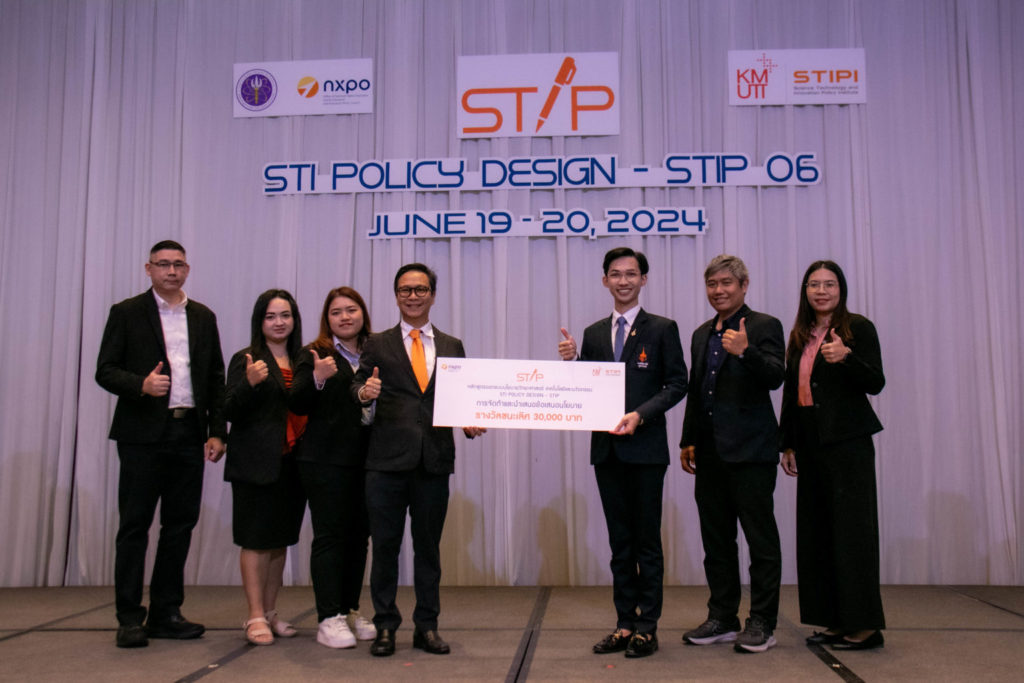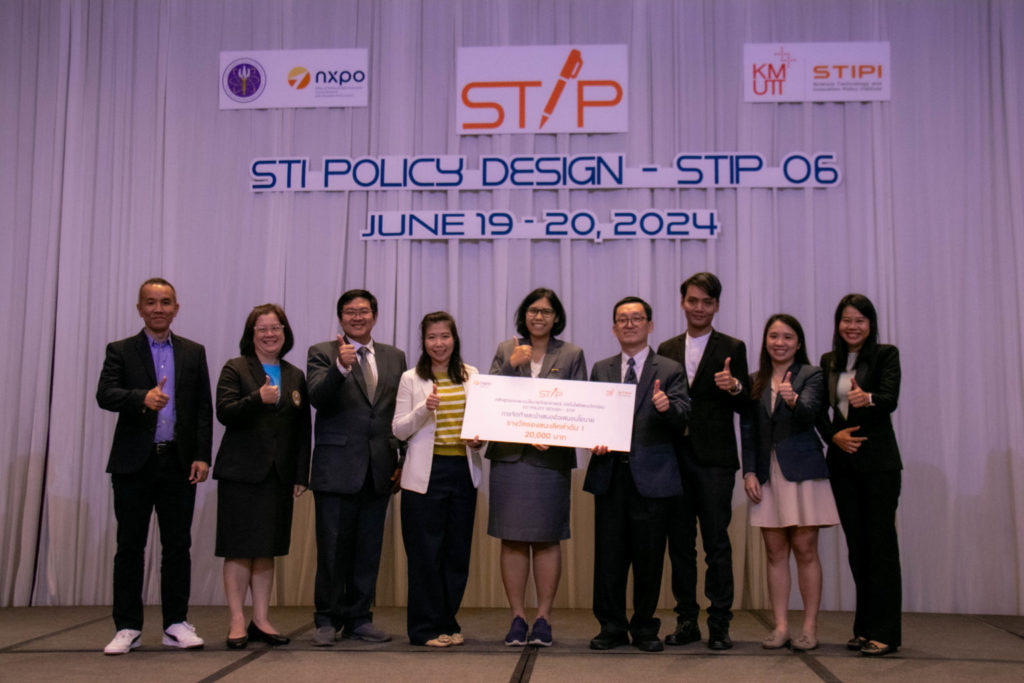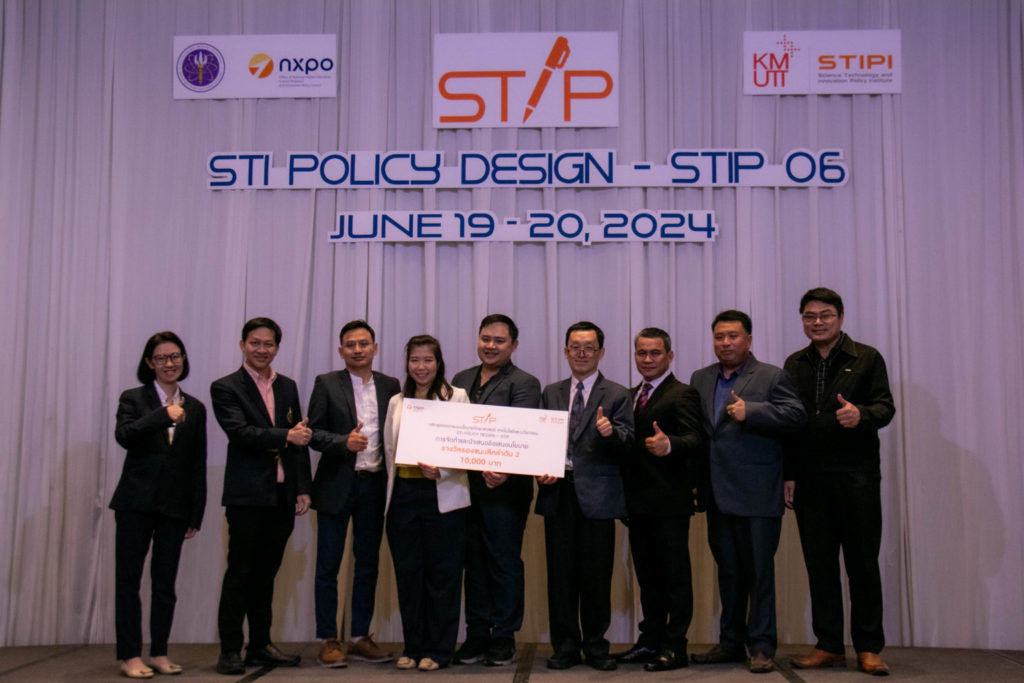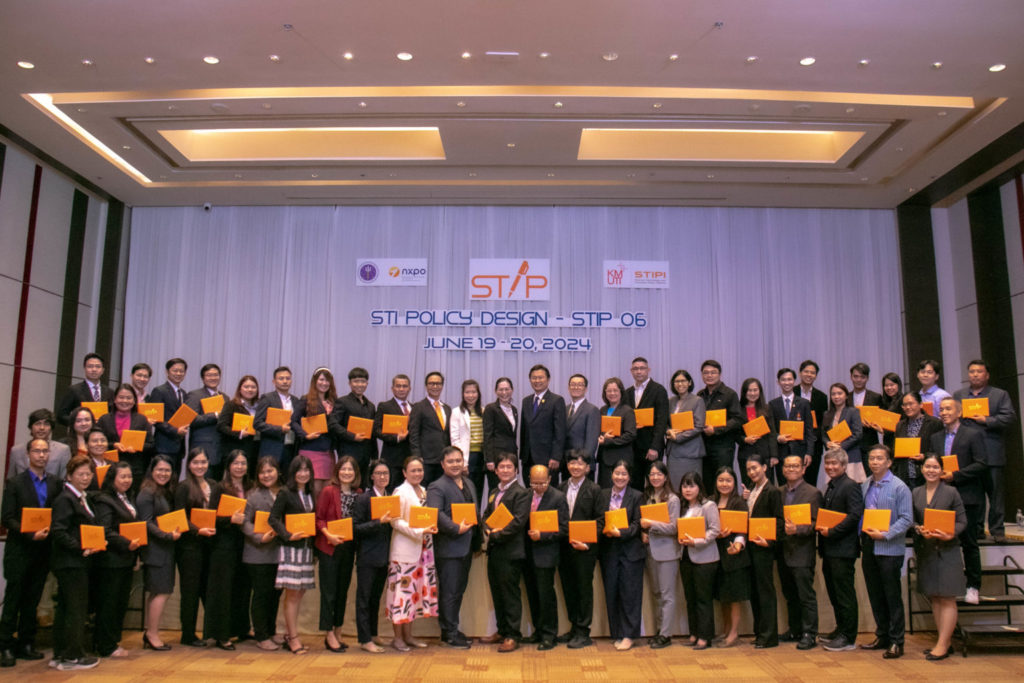
The final presentation and closing ceremony for the 6th cohort of Science, Technology and Innovation Policy Design Training Course (STIP06) took place on 19-20 June 2024, at the Eastin Grand Hotel Sathorn. STIP is a collaborative endeavor of NXPO and the Science, Technology and Innovation Policy Institute (STIPI) of King Mongkut’s University of Technology Thonburi (KMUTT), aiming to build Thailand’s capability in STI policy development. STIP06 had 58 participants from 30 organizations, including government agencies, academic institutions, research centers, program management units, and enterprises.
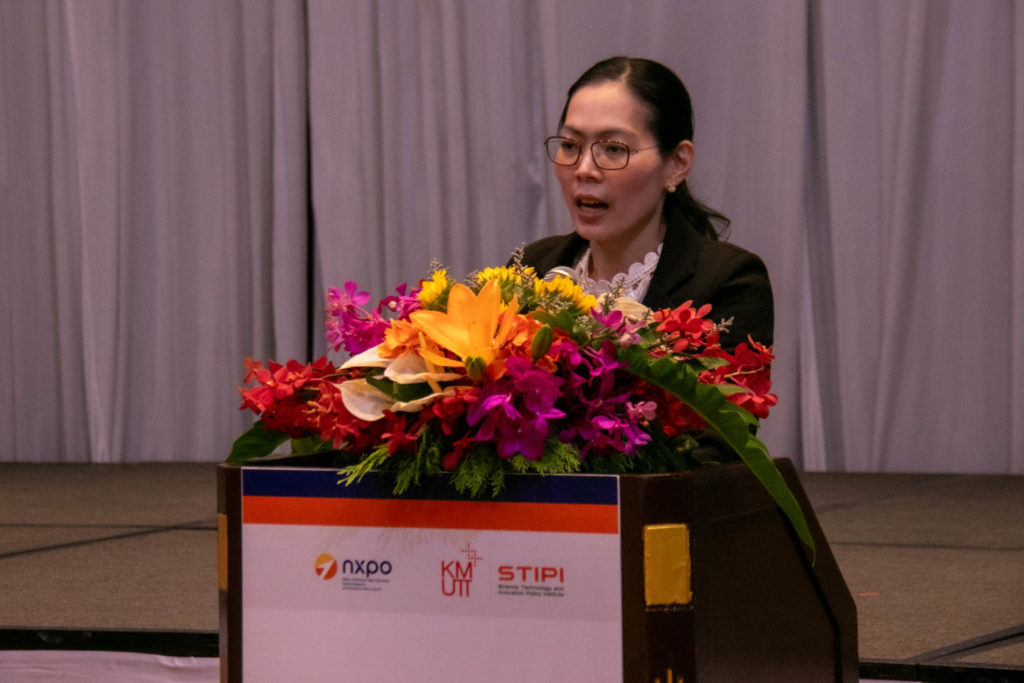
Dr. Siriporn Pittayasophon, Senior Strategist and Acting President of NXPO, remarked that STIP has grown significantly, from a humble beginning with only 1-2 participating organizations, to the present where 30 organizations are involved, exceeding the original expectations. The course was initiated with the prime objective to create more policy developers across various organizations, as policymaking is instrumental in driving the country’s key development agendas. This year’s group projects presented diverse policies, covering wide-ranging issues and demonstrating the power of policy in changing the world. She thanked executives and staff at KMUTT and NXPO, as well as advisors and coaches, for making the course a success, and expressed hope for a strong network for future collaboration.
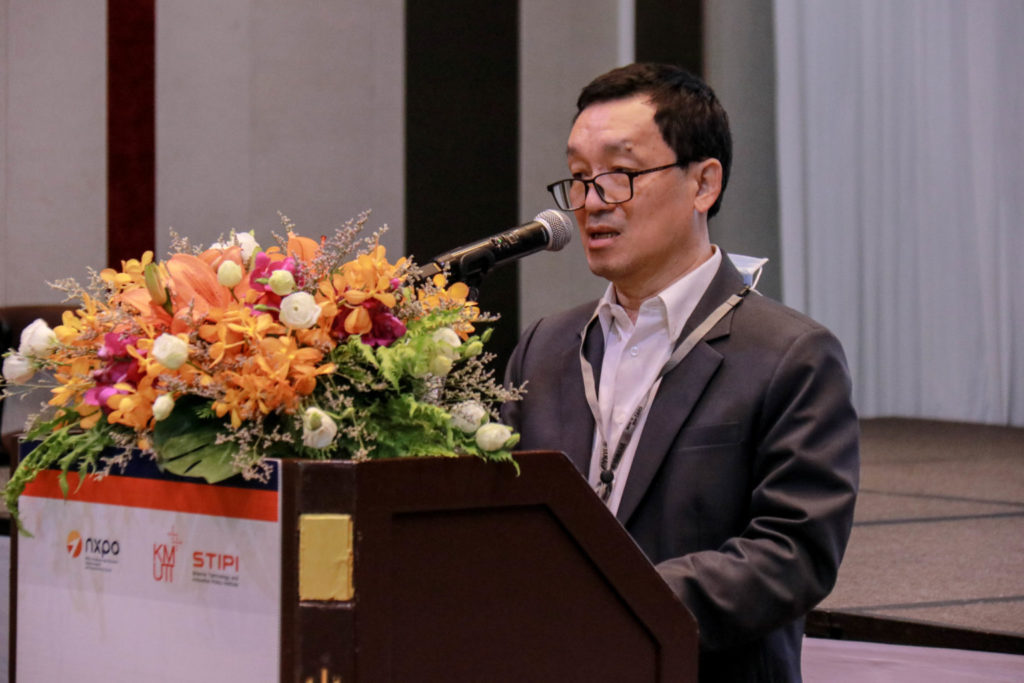
Dr. Suchat Udomsopagit, Assistant to the President at NXPO, stated that STIP aims to create policy designers in higher education, science, research, and innovation and to build a network for future collaboration in policymaking. The 2024 course began in February, featuring lectures on policymaking fundamentals and group projects on developing policies based on assigned topics. This final presentation session provided an opportunity for each group to present their work and receive feedback from experts.
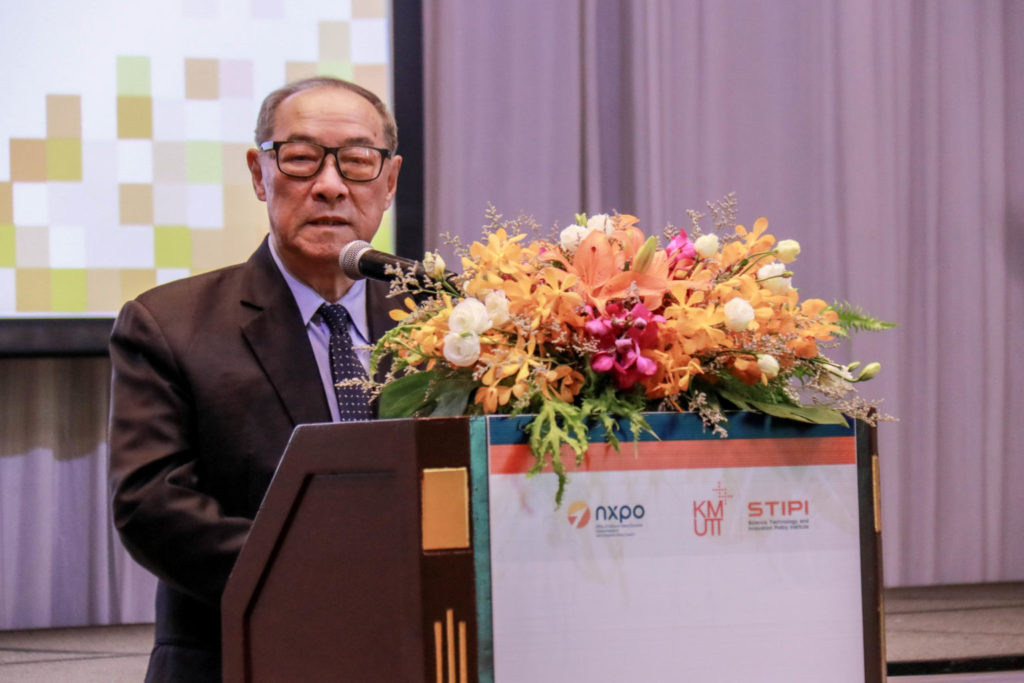
Dr. Krissanapong Kirtikara, an advisor at KMUTT, said that STIP has made significant contributions to Thailand’s policymaking landscape. He hoped that the network established through this course would connect to policy developers in East Asia and Southeast Asia, and that the policies designed by members of this network could drive changes in organizations and the country.
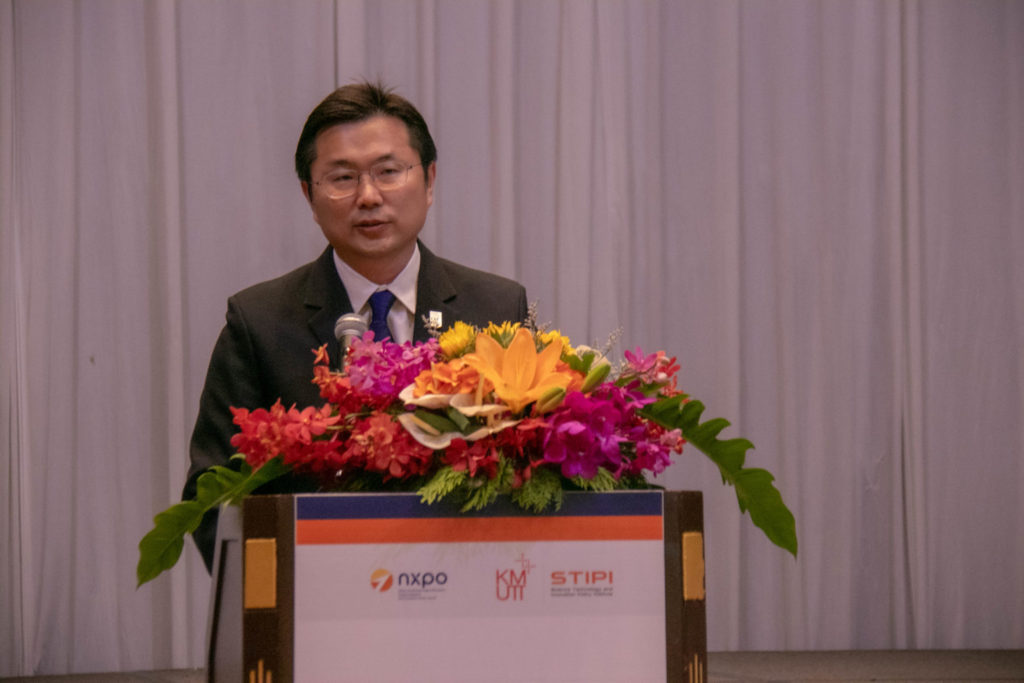
Assoc. Prof. Dr. Santi Charoenpornpattana, Vice President for Planning and Strategy at KMUTT, congratulated the graduates, noting that over 300 participants have completed the course since its inception. He encouraged participants to maintain strong connections and collaborate across agencies.
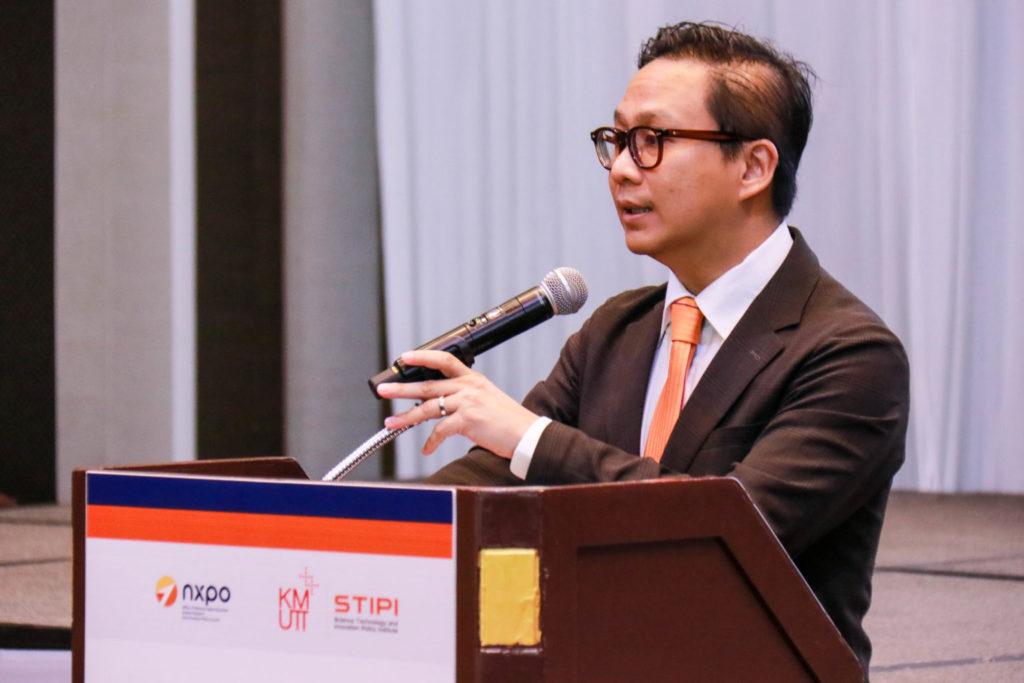
Dr. Bank Ngamarunchot, Director of STIPI at KMUTT, stated that the course aimed to achieve three key objectives: 1) identify national challenges, such as economic growth slowdown, the middle-income trap, production base relocation, and changes in international funding, 2) provide guiding principles of policymaking, and 3) create a robust network to drive collaborative policymaking.
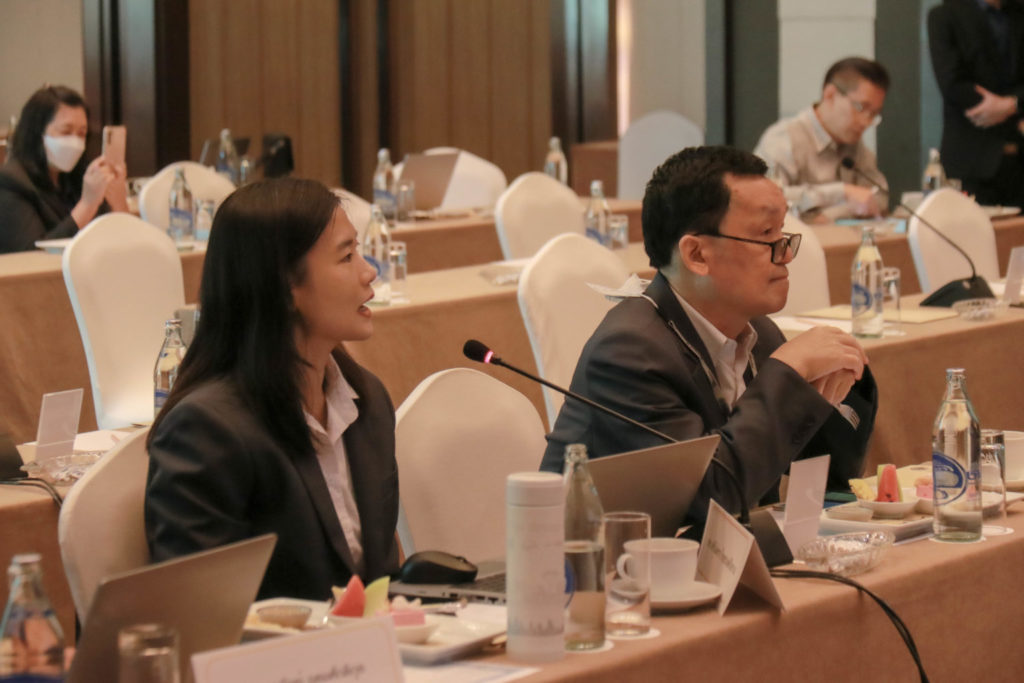
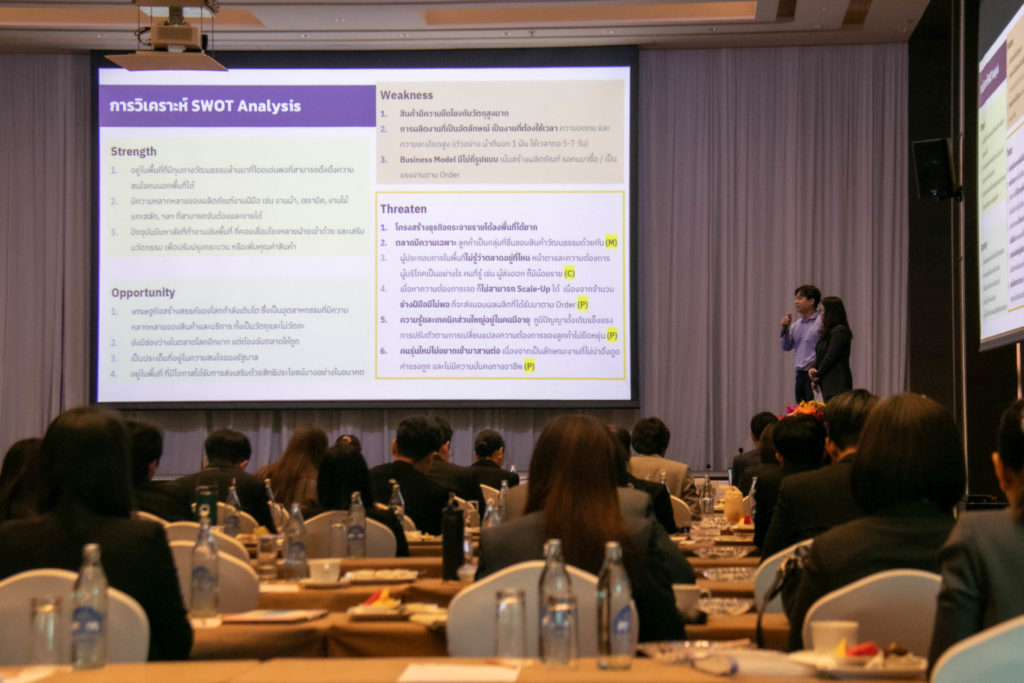
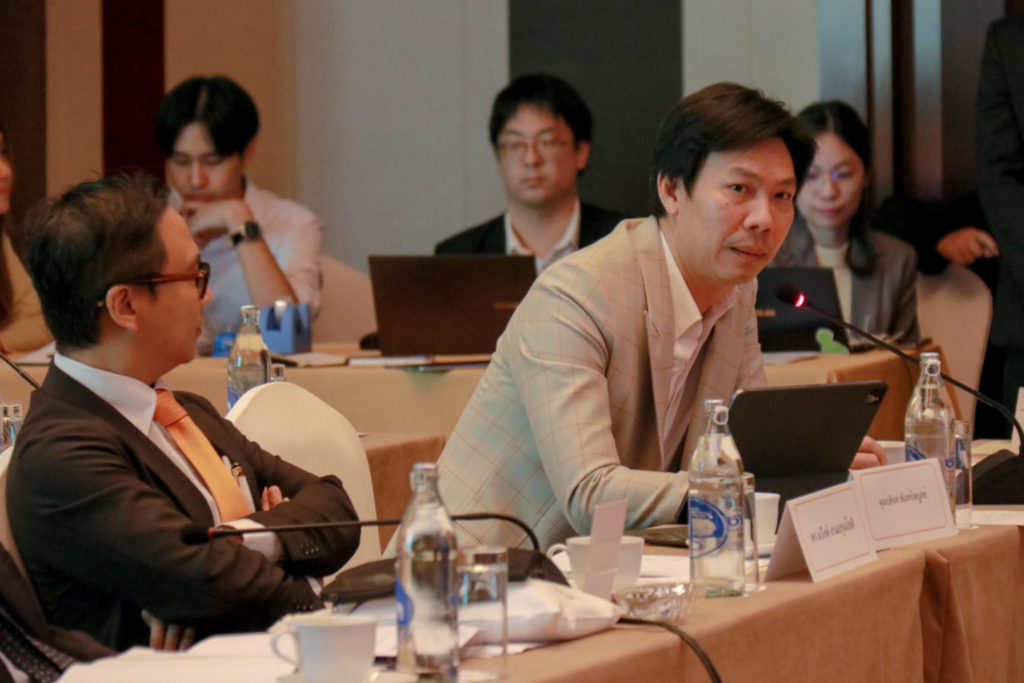
This year, participants were divided into 9 groups to develop policy based on assigned topics. Policies proposed by participants included: 1) skill development for workforce in the food and beverage business in the tourism sector in Pattaya, 2) policy to promote EV motorcycle adoption among motorcycle taxi drivers in Bangkok, 3) policy to promote the use of AI-CXR innovation for tuberculosis screening, 4) science communication to promote disease prevention through behavioral change, 5) policy recommendations for cultivating the deep tech ecosystem to enhance the competitiveness of rubber industry in Southern Thailand, 6) poverty eradication with new income sources from local resources in Ban Samran, Pathum Rat District, Roi Et Province, 7) mutually beneficial mechanisms for the industrial sector to support carbon tax measures, 8) development of cricket farmers and enterprises to support the future food industry, and 9) development of a creative economy in the Northern Economic Corridor using Lanna wisdom.
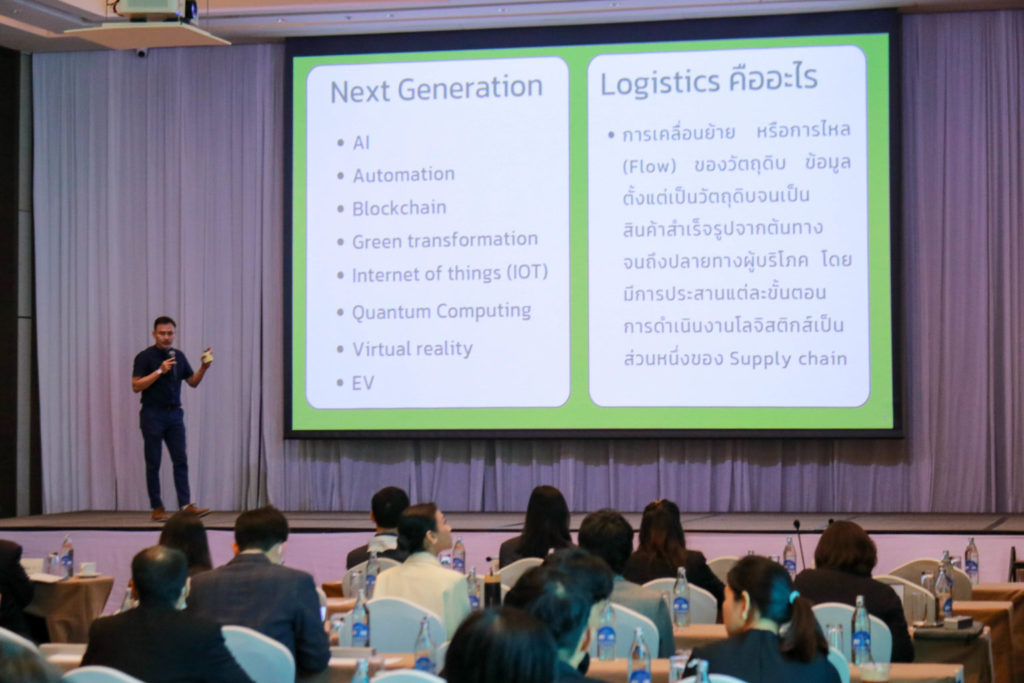
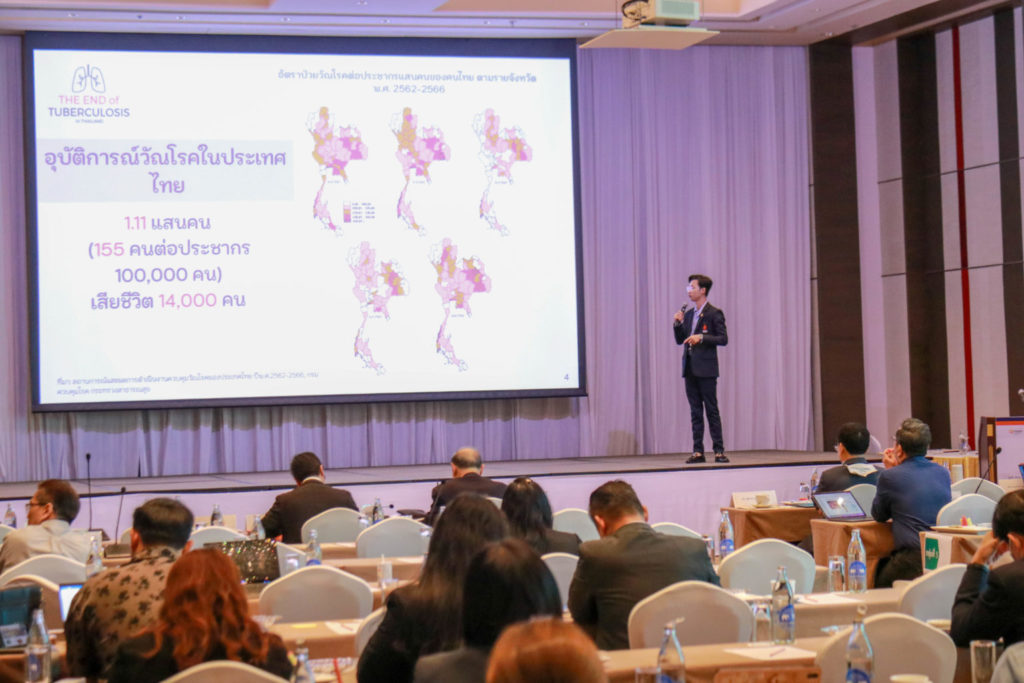
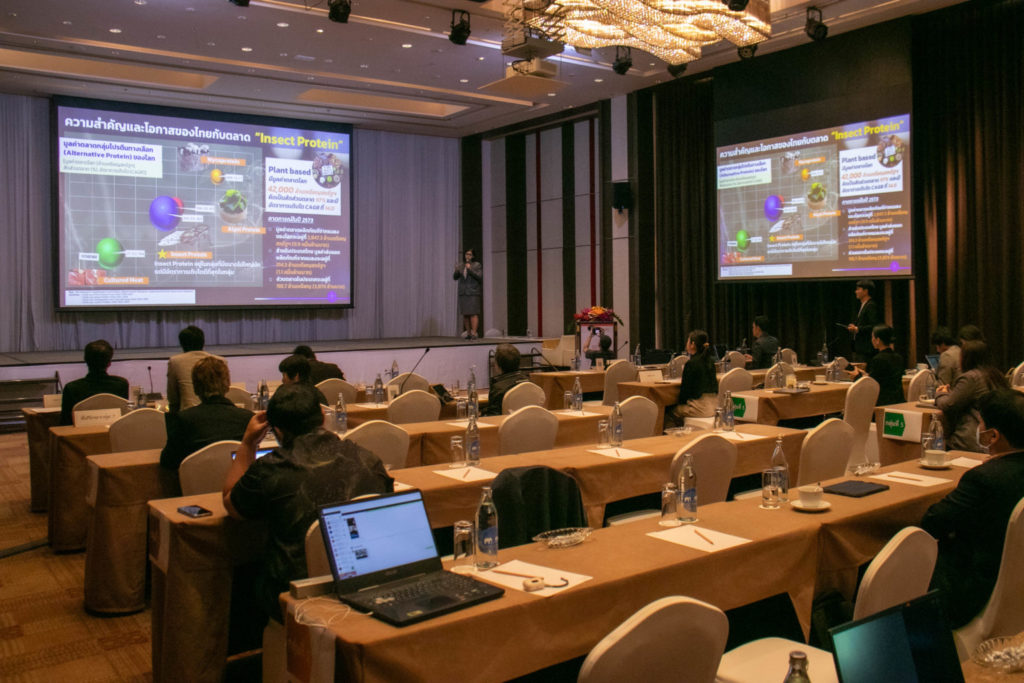
The event concluded with the certificate presentation and the announcement of group project winners. The first and second runner-up prizes were presented to groups proposing the development of cricket farmers and enterprises, and policy to promote EV motorcycle adoption, respectively. The grand prize went to policy to promote the use of AI-CXR innovation for tuberculosis screening.
